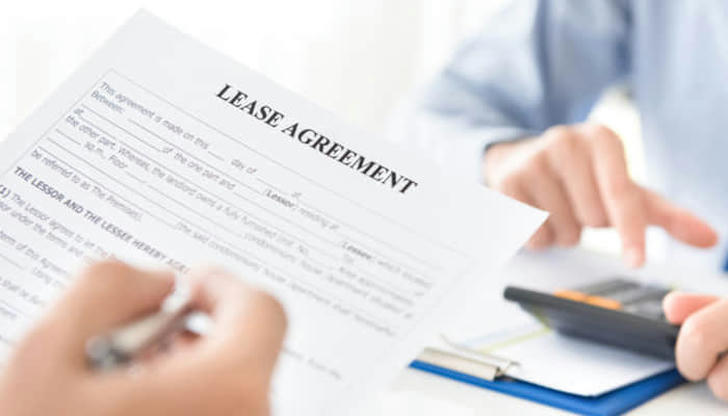11 Tips to Help Protect Your Real Estate Investment from a Recession
Markets often follow a cyclical pattern, making it likely that the U.S. economy will experience another recession in the near future, which could affect real estate. Potential causes for such a downturn include trade disputes, overvalued markets, terrorist attacks, and conflicts.
Investors who act now can protect themselves from significant losses during an economic slowdown or recession and may even be able to take advantage of the opportunities that downturns can present.
If a recession appears to be approaching, prepare your business to endure potentially tougher times. To minimize risk, consider implementing the following strategies.

1.Watch Your Leverage
Be cautious with your leverage positions. Excessive debt and its associated servicing commitments can make you especially susceptible during economic downturns.
If your financial ratios weaken, you might find it difficult to refinance when necessary. It’s wise to renegotiate or refinance your loans now to extend their terms and potentially secure lower interest rates.

2.Expedite Sales Timelines
If you’re considering selling properties soon, you might want to accelerate your plans. Otherwise, be prepared to retain these assets for several years or settle for lower returns, as cap rates typically require at least two years to recover to previous levels after a downturn.
It may also be wise to sell if uncertainties regarding the property’s long-term potential—such as location, tenants, or the property itself—are a concern. Alternatively, a like-kind exchange can be a good option, allowing you to reinvest in another property with steady cash flow and reduced exposure to economic risks.

3.Review Leases
Which leases are set to expire in the coming years? With vacancy rates already increasing, a recession could further drive up these rates while rents remain stagnant or decrease. This could lead to slower cash flows, making it challenging to meet loan obligations.
Assess which tenants are expected to remain reliable, taking into account how their industries might perform during a recession. Take steps now to extend leases for tenants likely to do well and consider replacing tenants whose revenues might decline in a downturn, as this could impact their ability to pay rent.

4.Stockpile Cash
During economic booms, it’s easy to feel tempted to spend more. However, it’s wiser to focus on increasing your financial reserves. Consider reducing or postponing owner distributions and allow the funds to build up in your operating accounts. This will help ensure you have sufficient resources for future improvements, leasing commissions, or potential revenue shortfalls.

5.Tackle Repairs, Rehabs and Upgrades Now
Don't delay in updating your assets—install that new roof, refresh both interior and exterior paint, or repave parking lots now. Use the currently available capital and low interest rates to enhance your properties' condition and curb appeal, benefiting both current and future tenants.

6.Invest in Technology
Automation is enhancing efficiency and reducing costs across various industries, including real estate. Conduct thorough research and invest in scalable technological solutions for routine sales and management tasks, allowing your employees to focus on more profitable activities.
Real estate, like the broader U.S. economy, operates in cycles. By taking proactive steps during periods of growth, you can mitigate the adverse effects on your bottom line when the market experiences a downturn.

7.Build Strong Relationships
Cultivating strong relationships with clients, lenders, and other real estate professionals is essential for navigating economic challenges. Effective communication and excellent customer service will help you keep existing clients and draw in new ones. For transformative insights, consider reading The Go-Giver—it could have a significant impact on your approach.

8.Be Adaptable
Be ready to adjust your business strategy according to shifts in the market. This might involve modifying your marketing approach, changing your commission structure, or introducing new services.

9.Focus on Niche Markets
Focusing on niche markets—like luxury homes, investment properties, or first-time home buyers—can differentiate you and lead to success even during a recession.

10.Maintain a Positive Attitude
Keeping a positive mindset and staying motivated is crucial during a recession. Remember that recessions are temporary, and opportunities will emerge. Stay committed to your goals and be ready to adapt as needed.
Although recessions can pose challenges to the real estate sector, they also offer opportunities. By applying these strategies, you can safeguard your business and continue to thrive, even in difficult economic conditions. Remain optimistic, well-informed, and focused on your objectives.
My bonus tip is to use this period to enhance your business systems and processes. Ensure you are organized, efficient, and automated so you’re fully prepared. When business picks up again, you don’t want to be held back by disorganized practices. Instead, aim to establish yourself as an authority and a trusted resource with strong business strategies and tools in place, enabling you to grow rapidly when the market rebounds.

11.Continuous learning
The real estate market is always evolving, and top agents make continuous learning a priority. This means staying informed about market trends, participating in industry events and seminars, and consistently enhancing your skills and knowledge. Ensure your brokerage or local association supports agent education. By effectively guiding and protecting your clients, you demonstrate your value, which will lead to ongoing business and referrals throughout your finance.
